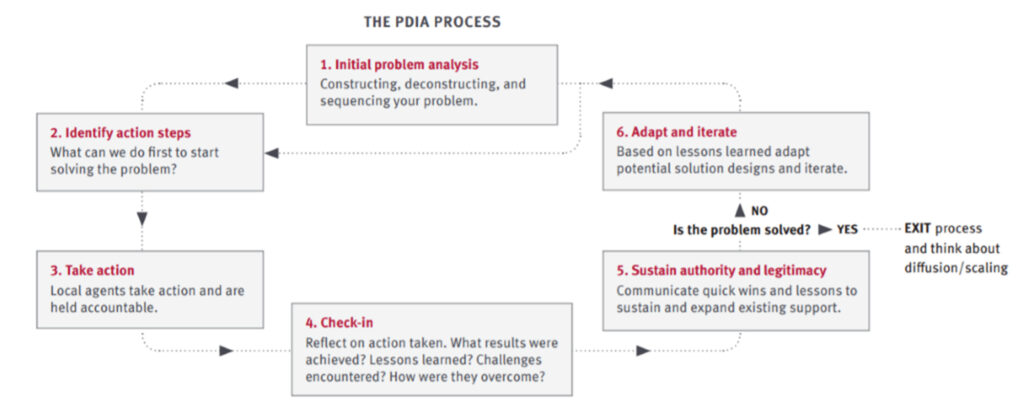Engaging Sub-national Authorities in Accountable Practices (ESAAP) – Research Facility: Democratic Republic of the Congo (DRC)
Engaging Sub-national Authorities in Accountable Practices (ESAAP) – Research Facility: Democratic Republic of the Congo (DRC)
Project Outputs
The DRC remains one of the world’s most fragile countries, with a precarious and fluid humanitarian situation. This is the result of continued conflicts between communities, non-state armed groups and Congolese security forces, and prevailing socio-economic challenges that affect the most vulnerable Congolese.
The FCDO-funded £3 million ESAAP programme, implemented by IRC, supports communities to identify and implement locally informed solutions to problems in the DRC’s provinces. The project aims at improving the local and provincial governance of basic services, such as waster, sanitation and hygience (WASH), education and health sectors. It does so through the formation and support of 15 Problem Driven Iterative Adaptation (PDIA) teams – or collective action groups – who work to increase the voice of Congolese citizens for improved provincial accountability.
Integrity manages the ESAAP research facility and supports IRC’s collective action groups by conducting Political Economy Analyses (PEAs) and Poverty Analyses in three provinces. These studies identify and inform groups on the intersection between community needs and opportunities for systematic change. They are the first step in the PDIA approach (1 & 2 in the below graphic). They break down local problems into root causes, identify entry points, and search for possible solutions. The studies support collective action groups to identify priorities, develop workplans and (3) take action.
 Following workplan implementation, Integrity helps collective action groups (4) to check-in and reflect on their work, the changes that might have occurred, the lessons learned, and challenges encountered in the process. These check-ins help the collective action groups adapt their approaches; promoting a test, learn, adapt, test, scale/drop cycle.
Following workplan implementation, Integrity helps collective action groups (4) to check-in and reflect on their work, the changes that might have occurred, the lessons learned, and challenges encountered in the process. These check-ins help the collective action groups adapt their approaches; promoting a test, learn, adapt, test, scale/drop cycle.
Integrity also develops policy briefs to support the dissemination of lessons learned, promote scaling up and inspire other donors and implementing agencies to test similar approaches in other complex contexts.
Finally, as part of the research facility, Integrity supports FCDO through demand-led PEAs which contribute to informing wider FCDO programming in the DRC, including on Governance, Health, Education and WASH.
For more information on the PDIA process see The PDIA Toolkit: A DIY Approach to Solving Complex Problems, Building State Capability, Center for International Development, Harvard University p7, 2018.
Tags
Democratic Republic of the Congo,
